I love to feel on the very edge of literary news; love knowing about good books fresh off the presses and tracking my favourite authors’ most recent publications. It’s also an important part of writing a good book club blog.
But looking back matters too.
A reader’s life follows two tracks. One is linear and driven by time, which marches in one direction.
The other hops and skips back and forth through history—which is written time—and follows no chronology at all. That’s a readers’ book list. I can sit down one day and read Greek drama— say, Aeschylus’ Oresteia—and then, the next day, pick up Lawrence Hill’s The Illegal, which is just a few months old, and be none the worse for wear.
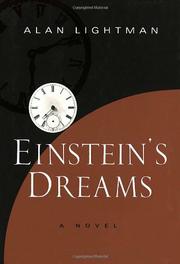 If all of this sounds a bit meditative, it’s because I’ve just read Einstein’s Dreams, by Alan Lightman, published in 1993.
If all of this sounds a bit meditative, it’s because I’ve just read Einstein’s Dreams, by Alan Lightman, published in 1993.
Writer and blogger Maria Popova describes Lightman this way:
« A physicist and a novelist, and MIT’s first professor with dual appointments in science and the humanities, he is one of those rare intellectual amphibians who inhabit the worlds of art and science with equal grace. »
I’m fascinated by the Alan Lightmans of the world: beautiful, enlightened minds that seem able to move in directions and dimensions that escape most of us, crossing over from science to the arts or humanities as though it were the easiest thing in the world, and building bridges for us along the way.
I count among them people like Richard Feynman, Brian Swimme, Robin Wall Kimmerer, E.O. Wilson, Brian Cox and Oliver Sacks.
But this is just the short list.
And of course, there’s Albert Einstein.
And yet, simultaneously, such thinkers and feelers still seem few and far between.
Maybe it’s simply that they’re so busy experiencing and asking questions about the wonder of life that only a small minority of them take the time to encode thoughts and feelings that are as mathematical as they are emotional and linguistic.
I’m so happy that Alan Lightman has.
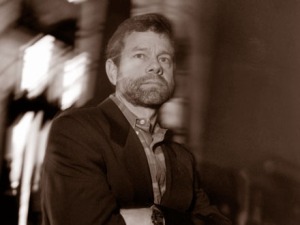
Einstein’s Dreams is his first novel, though I’m not sure that’s the the best way to describe this small (140 page), singular piece of fiction.
Lightman imagined a series of dreams—thirty in all—that might have haunted the nights in 1905 that Einstein spent working on his theory of special relativity in the patent office in Bern, Switzerland, where he also worked by day.
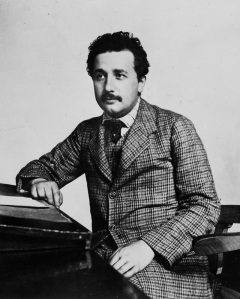
Recounted in three to four pages, each dream imagines a world in which the value or working of time is different.
Some of the dreams incorporate the actual consequences of special relativity, while others simply ask difficult, beautiful, puzzling or impossible questions, leaving it to the reader to decide whether Lightman’s treatment of them is satisfactory or even exquisite.
In one dream, time moves more slowly the farther people and objects are from the center of earth. In such a world, those eager to stay young live as far—meaning as high—as they can. Some go to the extreme of building mountain top homes on stilts. Elevation comes to literally embody social hierarchy and the few look down on the many.
But to others, the value of a few hours, a few more days, matters less than going down to the forests, valleys and lakes. Eventually, no one can remember why they began living this way and yet still, they persist and their children follow…
Another dream—one that stayed with me for a while—begins with this phrase: « The world will end on 26 September 1907. »
Time running out.
What would that mean? What could Einstein’s subconscious imagine? I thought of the sense of despair that might invade human societies and of more personal, spiritual things too.
But Einstein, instead, dreams of a last period of freedom, of letting go and of joy. When time is so clearly finite, values change utterly. In the last year, schools close. In the last month, businesses. Lightman writes: « A liberation fills the air.». As everyone shares the same fate, there’s nothing left to fear. Einstein dreams of the last minute. It is quiet. Heartbeats can be heard. No one speaks.
In another dream, people live forever. Some, the Laters, knowing that they have all the time in the world, live in a chronic state of postponement. The others, the Nows, believe that they can do all that they imagine and so do, do, do. But, in the dream, with infinite life comes an infinite list of relatives. Children never escape from the shadows of their forebears. Lightman writes: «No one ever comes into his own.»
For me, this was an unexpected turn. Many dreams are like this.
Suppose that time is a quality and not a quantity. Suppose it flows like a river, occasionally disrupted. Suppose time is a circle, bending back on itself, the world repeating itself precisely and endlessly. What if there is no future? What if there is no past?
There are as many redefinitions of time as there are dreams.
Because every dream is like a window opening onto an unexpected space-time reality, Lightman’s book feels like anything but a novel. There is more of Lewis Carroll than there is of Charles Dickens in his book.
Lightman’s prose is serious, precise, elegant and beautifully poetic, and the book allows itself to be read one small bite at a time. I tried to do that, and couldn’t help reading at least 5 or 6 dreams at a sitting, which limited my pondering.
Still, I didn’t waste a second of my time.
“Here we are, trapped in the amber of the moment. There is no why.”
― Kurt Vonnegut
*******
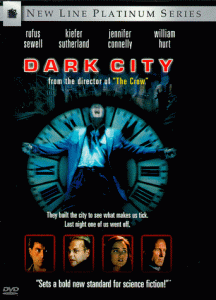 I. The effect Einstein’s Dreams had on me reminded me of the way I felt after several wondrous cinematic experiences. Here are some of the movies that also examine human interaction with time in original ways:
I. The effect Einstein’s Dreams had on me reminded me of the way I felt after several wondrous cinematic experiences. Here are some of the movies that also examine human interaction with time in original ways:
and Dark City
II. Here are all of the Lightman titles in the Library’s collection:
Works of fiction:
- The Diagnosis (2000)
- Einstein’s Dreams (1993)
- Mr. G : a novel about creation (2012)
Non-fiction:
- Ancient Light : our changing view of the universe (1991)
- The Discoveries : Great Breakthroughs in 20th century Science (2005)
- A Sense of the Mysterious : Science and the Human Spirit (2005)
III. Alan Lightman’s complete bibliography:
https://www.kirkusreviews.com/author/alan-lightman/

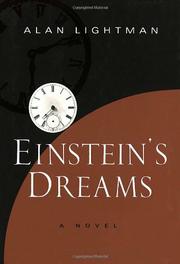
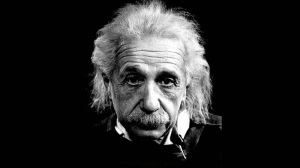

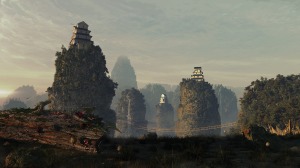
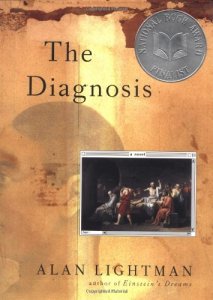
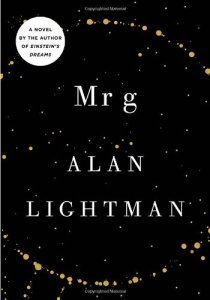
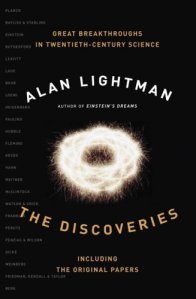
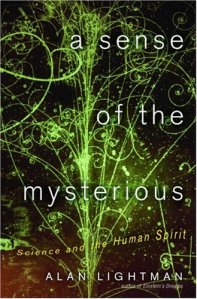
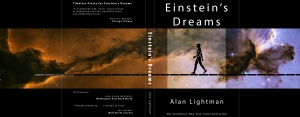
You have inspired me to borrow both Einstein’s Dreams and the DVD Dark City from the library. Thank you so much for your post!
I’ve discovered several beautiful books in recent weeks that inspired me to write (!) but also just plain inspired me.
Dark City is a mixture of scifi and noir detective, with great casting.
I LOVED it. Its take on time is through the problem of memory and identity. It’s a movie that should have found a much bigger audience.
You know, I haven’t forgotten about your recommendation of “The sound of a wild snail eating” by Elisabeth Tova Bailey.
I looked it up and IT sounds inspiring too.
I’ll get to it. I promise. Maybe in the spring. 🙂
I really enjoyed the film Dark City. It was visually stunning and the story line unique. Thank you so much for that recommendation.
Oh! I’m at home working and you’ve made me smile. Thanks so much!
Dark City is a gem. 🙂
I loved the novel Einstein’s Dreams. It is a book I want to own. Thank you so much for your review as I would not have read it otherwise.
Hi Carlota,
You have a knack for making my day. That’s really the purpose of an online book club, isn’t it? To put readers from far and wide (and sometimes, just around the corner 🙂 ) in touch, so they can share personal favourites, recent discoveries, or even, disappointments.
I’m so glad you enjoyed Lightman’s book.